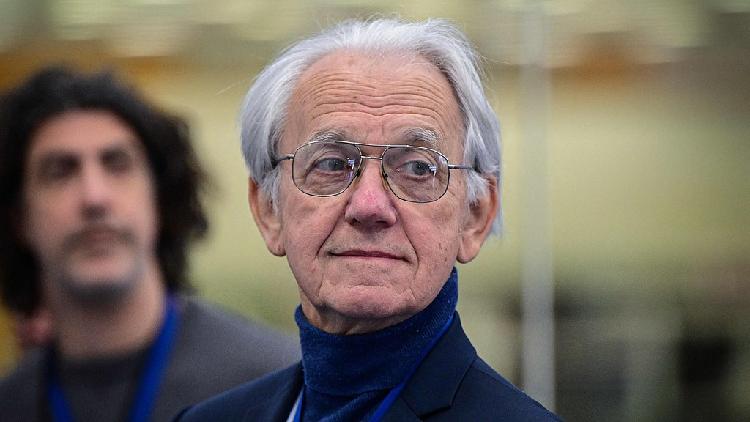Nobel Prize Winner Gerard Mourou Collaborates on Extreme Light Research in China
Nobel laureate Gerard Mourou shared his future research intentions for China on Friday, stating, "I'm going to work on extreme light for medical and energy fields."

The French physicist recently became a chair professor at Peking University's School of Physics and shared his insights on the sidelines of the Beijing Forum, an annual global academic event dedicated to innovation and human progress, running from November 1 to 3.
At the forum's opening ceremony, Mourou highlighted the potential uses of ultra-high-intensity lasers in various fields, including medicine and nuclear energy. In 2018, he garnered the Nobel Prize in Physics alongside Arthur Ashkin and Donna Strickland for their transformative contributions to laser physics.
According to Peking University, Mourou is anticipated to play a pivotal role in establishing a new institute dedicated to scientific research and international collaboration in laser physics, particle physics, nuclear physics, medical physics, and astrophysics.
As China continues to invest significantly in science and education, the influx of global talent is growing. Since 2021, Fields Medal winner Caucher Birkar has been teaching mathematics at Tsinghua University, and structural biologist Yan Nieng returned from Princeton University in 2022 to launch a medical academy in Shenzhen; Yan also spoke at this year's Beijing Forum.
Not long after Mourou's appointment at Peking University, a symposium marked the 50th anniversary of the discovery of the J particle, attracting notable figures such as Nobel laureates Samuel Chao Chung Ting, Sheldon Glashow, and David Gross, alongside Luciano Maiani, the former director-general of CERN.
"Achievements of the Chinese efforts are truly remarkable," Gross explained to the media, noting the significance of holding the event in China despite the fact that the J particle was not discovered there. Ting added that while the initial discovery occurred elsewhere, all 30 newly identified members of the J particle family were found at the Chinese Academy of Sciences' Institute of High Energy Physics.
Mourou commended China's scientific and technological progress over recent decades, remarking, "I knew some of the scientists, and they are interested in what I'm doing." He humorously noted the "smart enough" scientists who persuaded him to join the university to establish a new institute focused on ultra-high-intensity lasers.
He further expressed his admiration for Chinese students, emphasizing their strengths in innovation beyond the conventional academic metrics often emphasized in stereotypes.
Over 500 scholars and experts from more than 30 countries and regions are participating in the 2024 Beijing Forum, which covers topics such as sustainable development, environmental issues, health, digitalization, and artificial intelligence.
Reflecting on the future of his research, Mourou stated, "The best is yet to come" regarding potential applications.
Emily Johnson for TROIB News
Discover more Science and Technology news updates in TROIB Sci-Tech












